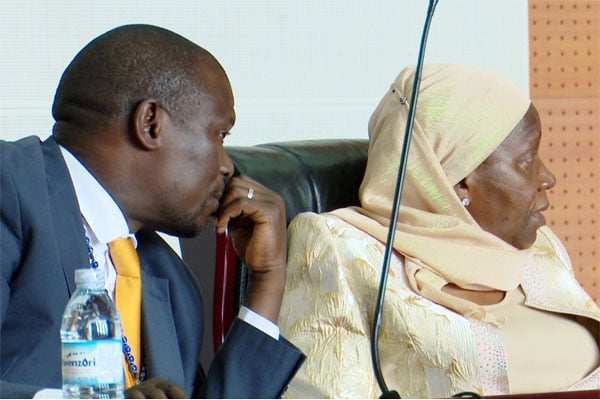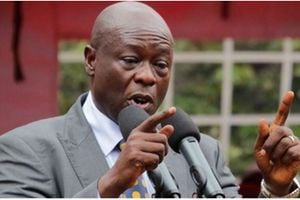Prime
Our very own book of lamentations: Why citizen agency is urgent

Author: Edward Serucaca Jnr. PHOTO/FILE
What you need to know:
- If our leaders continue to lament the state of their own sectors without addressing the root causes, the system remains in disarray. Why are our leaders content with wringing their hands when decisive action is needed?
A disturbing trend among our leaders is slowly being normalised; they express dismay over the very issues they are responsible for solving, offering lamentations instead of action.
In a functional democracy, the government serves and is accountable to its people in equal measure. But when it fails, who will hold it accountable?
Is lamentation an acknowledgment of failure, or a deflection of responsibility? The minister of Internal Affairs has repeatedly criticised the dire welfare of the police and the inefficiencies within the criminal justice system.
During a recent commencement speech at Kampala International University, amidst swirling allegations of corruption against the Speaker, Anita Among, he commented, “we don’t elect leaders to steal.” Many interpreted his remarks as a veiled critique of the Speaker herself.
How can Gen Otafiire, a long-serving Cabinet member and ‘liberation icon’, be caught lamenting over the very system he with others have presided over for decades- and worse over the very institutions he superintends?
Another example is the junior Minister for Finance and Investment, Evelyn Anite, whose litany of complaints about corruption within the Uganda Investment Authority—an institution under her charge—has raised more than eyebrows. These lamentations highlight a growing pattern: our “leaders” seem more eager to identify problems than to solve them.
This begs a pressing question: who then is responsible? If our leaders continue to lament the state of their own sectors without addressing the root causes, the system remains in disarray. Why are our leaders content with wringing their hands when decisive action is needed?
In sharp contrast, our neighbour Kenya, faced with similar challenges has taken a different path when it comes to accountability.
While Kenya’s governance reforms are far from perfect, there have been significant efforts to combat corruption and improve transparency. Institutions like the Ethics and Anti-Corruption Commission (EACC) and accountability frameworks provided under legislation such as the Public Finance Management Act have demonstrated a commitment to addressing issues that plague government.
These mechanisms, while not without their flaws, at the very least reflect a desire to uphold accountability, something Uganda sorely lacks.
Here in Uganda, we have leaders who have mastered the art of lamentation without consequence. Who will stop them? Who will hold the government accountable when the very institutions responsible for oversight are complicit or apathetic? The President has elected to institute parallel institutions- I’ll come back to this in a forthcoming opinion.
The answer is simple: we the citizens must take up this daunting, thankless and in some instance dangerous task. It is the duty of every Ugandan citizen to hold our leaders accountable. We cannot afford to sit on the sidelines, watching as those in power lament their own failures.
If Kenya, with all its challenges, can create accountability mechanisms, why can’t we? Is it time for constitutional reform? As citizens, we must use every platform available to us—civil society, social media, public protests, and community organising—to demand change. We must at every opportunity call out the hypocrisy of leaders who cry foul over the very systems they control. In doing so, we can shift from a culture of lamentation to one of action.
As Aristotle wisely noted, “Those who are too smart to engage in politics are punished by being governed by those who are dumber.” In Uganda, those who fail to engage in the struggle for accountability will continue to be ruled by leaders who prefer to complain rather than lead.
Edward Serucaca Jr is a lawyer and advocacy strategist




